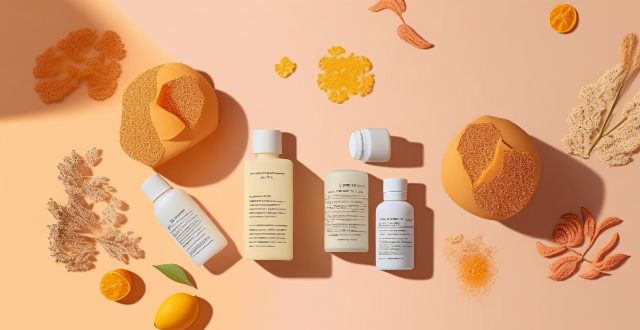Certain skincare ingredients can make your skin more prone to sun damage, including retinoids, alpha hydroxy acids, and vitamin C. To protect your skin from sun damage, it is essential to use sunscreen every day, be cautious when using products containing these ingredients, avoid peak sun hours, and wear protective clothing.

Can Certain Skincare Ingredients Make My Skin More Prone to Sun Damage?
Skincare ingredients play a crucial role in maintaining the health and appearance of our skin. However, some ingredients can make your skin more susceptible to sun damage. In this article, we will discuss the potential risks associated with certain skincare ingredients and how you can protect your skin from sun damage.
Key Takeaways
- Certain skincare ingredients can increase your skin's sensitivity to the sun.
- It is essential to use sunscreen when using these ingredients.
- Be cautious when using products containing retinoids, alpha hydroxy acids, and vitamin C.
Introduction
Our skin is constantly exposed to harmful UV rays from the sun, which can cause premature aging, dark spots, and even skin cancer. While using skincare products can help improve the overall health of our skin, some ingredients can make it more vulnerable to sun damage. In this article, we will explore the potential risks associated with certain skincare ingredients and provide tips on how to protect your skin from sun damage.
Ingredients That May Increase Sun Sensitivity
Retinoids
Retinoids are derived from vitamin A and are commonly used in anti-aging skincare products. They work by promoting cell turnover and stimulating collagen production, which can help reduce the appearance of fine lines and wrinkles. However, retinoids can also increase your skin's sensitivity to the sun, making it more prone to sunburn and other forms of sun damage.
Alpha Hydroxy Acids (AHAs)
Alpha hydroxy acids are a group of compounds found in fruits and other natural sources. They are commonly used in exfoliating skincare products to help remove dead skin cells and improve the overall texture of the skin. However, like retinoids, AHAs can also increase your skin's sensitivity to the sun, making it more vulnerable to sun damage.
Vitamin C
Vitamin C is an antioxidant that is often used in brightening skincare products. It works by inhibiting the production of melanin, which can help reduce the appearance of dark spots and hyperpigmentation. However, vitamin C can also increase your skin's sensitivity to the sun, making it more prone to sunburn and other forms of sun damage.
How to Protect Your Skin from Sun Damage
Now that you know which ingredients may increase your skin's sensitivity to the sun, here are some tips on how to protect your skin from sun damage:
Use Sunscreen Every Day
It is essential to use sunscreen every day, even if you are not planning on spending much time outside. Look for a broad-spectrum sunscreen with an SPF of at least 30 and apply it generously to all exposed areas of your skin. Reapply every two hours or after swimming or sweating.
Be Cautious When Using Products Containing Retinoids, AHAs, or Vitamin C
If you are using skincare products containing retinoids, AHAs, or vitamin C, be extra cautious when going out in the sun. Apply sunscreen liberally and consider wearing protective clothing, such as a hat or long-sleeved shirt, to minimize exposure to UV rays.
Avoid Peak Sun Hours
The sun's UV rays are most intense between 10 a.m. and 4 p.m. If possible, try to avoid spending prolonged periods outside during these hours. If you must be outside during peak sun hours, seek shade or use an umbrella for additional protection.
Wear Protective Clothing
In addition to using sunscreen, consider wearing protective clothing such as a wide-brimmed hat, sunglasses, and long-sleeved shirts made of tightly woven fabrics that can block UV rays. This can provide an extra layer of protection against sun damage.